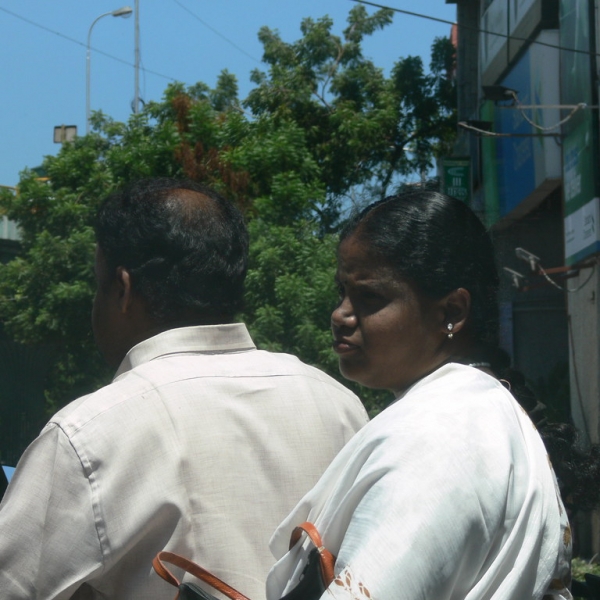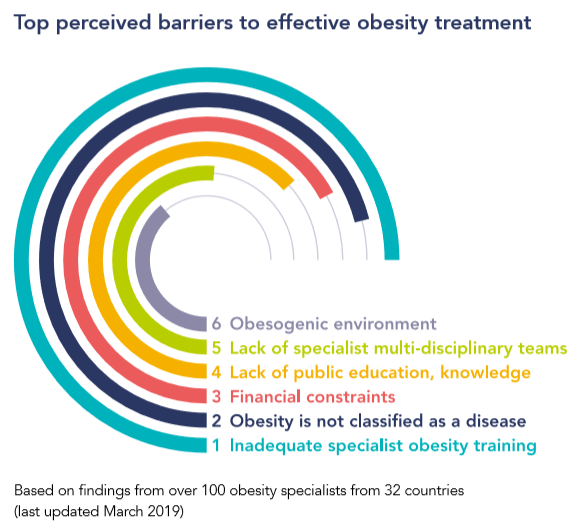Obesity, Universal Health Coverage and Sustainable Development - an introduction
Nearly two decades ago world leaders gathered in New York to commit to a set of Millennium Development Goals (MDGs). These eight ambitious goals aimed to end poverty and hunger, reduce child mortality, and to promote social and economic development in the poorest countries. Great progress was made in key health areas including maternal mortality and HIV/AIDS.
Unfortunately, non-communicable diseases (NCDs) including cancer and obesity were not included in this agenda, and coupled with other implementation challenges, many countries and populations remained excluded from progress at the time of the MDGs’ end date of 2015.
The Sustainable Development Goals (SDGs) followed on from the MDGs, marking an urgent call to build a more sustainable, safer and prosperous planet for all. The development agenda from 2015 to 2030 now includes new targets addressing climate change, economic inequality, innovation, peace and justice, universal health coverage (UHC) and NCDs. The goals are designed to be ‘indivisible and interconnected’ – for example, progress in health outcomes is dependent on progress in climate and education too.
Good health and wellbeing are essential components of sustainable development. The 2030 Agenda recognises this: improving health will promote economic prosperity and reduce poverty and inequality. Whereas the MDGs omitted NCDs, the SDGs take a more holistic view of health. They will measure progress against indicators on NCD reduction, as well as risk factors including alcohol and tobacco consumption.
Yet obesity – a risk factor for all the major NCDs, a chronic disease in its own right, and a serious global public health challenge – remains buried in the UN’s development agenda. In order to fulfil World Obesity’s mandate to be a truly global organisation, we are publishing a series of blogs exploring this topic in depth. We will look at the complexity of obesity in low- and middle-income countries (LMICs), as well as the bias embedded within the international system that is holding back progress. In this first blog we introduce the issues and World Obesity’s work on UHC.
- Sustainable development means meeting the needs of the present without compromising the ability of future generations to meet their own needs.
- Universal health coverage (UHC) means that all people and communities can use the promotive, preventive, curative, rehabilitative and palliative health services they need, of sufficient quality to be effective, while also ensuring that the use of these services does not expose the user to financial hardship.
Obesity is a global disease. According to the World Health Organisation (WHO) there are approximately 2 billion adults overweight, of whom 650 million are affected by obesity (BMI 30 kg/m2).
“Once considered a high-income country problem, overweight and obesity are now on the rise in low- and middle-income countries, particularly in urban settings. In Africa, the number of overweight children under 5 has increased by nearly 50 per cent since 2000. Nearly half of the children under 5 who were overweight or obese in 2016 lived in Asia.” – World Health Organization
The Pacific Island of Tonga – a low-income small island developing state – has the world’s highest obesity prevalence, with 46.5% of men and 67.3% of women living with obesity. World Obesity’s data in the Global Obesity Observatory demonstrates that obesity is a global issue and can no longer be described as a disease of affluence.
From a public health perspective, rising obesity is not a sign of progress but from a cultural perspective it may be. For example, in parts of Sub Saharan Africa and some small island developing states (SIDS), being overweight is associated with success and wealth: men aspire to be ‘big’ while women may be encouraged to gain weight to please their husbands. Obesity is not yet seen as a barrier to development, but its impacts will cost individuals and societies greatly. Addressing obesity will be essential to ensure sustainable development.


“It is imperative to reach those in low- and middle-income countries to manage obesity as a disease. Research has shown that many diabetics are living with both obesity and hypertension; but only diabetes and hypertension get treated, leaving untreated the major underlying illness – Obesity.” - Dr Agbo Urudinachi, President of the Nigerian Obesity Society.
UHC is a unifying goal to help governments achieve equitable and sustainable health outcomes. WHO has identified UHC as one of its 3-billion targets on coverage, protection, and enjoying better health. UHC means enjoying a high standard of physical and mental health and having access to high-quality affordable health services. Combining health and development objectives, UHC aims to reduce poverty and improve heath without leaving anyone behind. This aim will be unattainable with current projections that 2.7 billion adults will be overweight or living with obesity by 2025. Furthermore, the economic burden of obesity will increase to $1.2 trillion per year, having severe effects on health systems. Obesity must be a global health priority if UHC is to be realised.
UHC is an opportunity to strengthen all health systems for obesity. Research conducted by World Obesity, based on a survey of over 100 obesity specialists spanning 32 countries, found that tackling the barriers to improve obesity services also align with UHC priorities: inadequate specialist obesity training, financial constraints and a lack of public education. By addressing these health-system level issues, obesity advocates can contribute to UHC and sustainable development.

The SDG agenda urges us to focus on the people left behind, and the furthest-behind first. For obesity advocates this means continuing work in our own countries, but it also means supporting efforts to tackle obesity in the poorest countries where obesity is a rapidly growing public health problem. On 23rd September at the United Nations General Assembly in New York, political leaders will attend the first High Level Meeting on UHC. We must use this opportunity to raise awareness about obesity as a global crisis and to accelerate action at country level. Through working together to make obesity a global health and development priority, UHC is an opportunity to unite and amplify all our voices.
By Claudia Batz and Rachel Thompson, World Obesity Federation